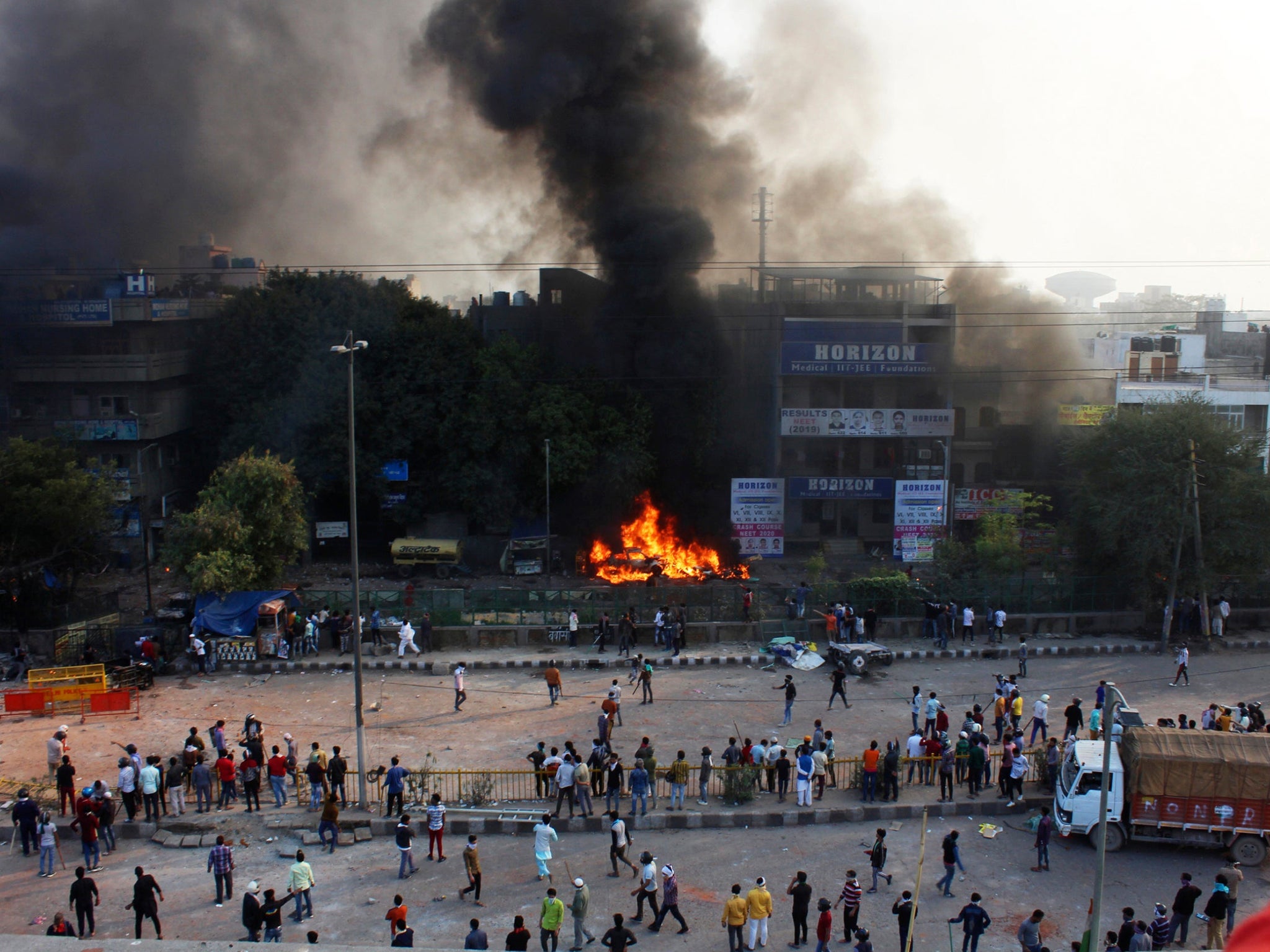India now a ‘dangerous and violent space for Muslims’, report says
Report finds suppression of freedom and attacks against minorities common across all South Asian nations

Your support helps us to tell the story
From reproductive rights to climate change to Big Tech, The Independent is on the ground when the story is developing. Whether it's investigating the financials of Elon Musk's pro-Trump PAC or producing our latest documentary, 'The A Word', which shines a light on the American women fighting for reproductive rights, we know how important it is to parse out the facts from the messaging.
At such a critical moment in US history, we need reporters on the ground. Your donation allows us to keep sending journalists to speak to both sides of the story.
The Independent is trusted by Americans across the entire political spectrum. And unlike many other quality news outlets, we choose not to lock Americans out of our reporting and analysis with paywalls. We believe quality journalism should be available to everyone, paid for by those who can afford it.
Your support makes all the difference.A new report highlighting India’s shrinking space for dissent from civil society actors has said that the country has become a “dangerous and violent space for Muslim minorities”.
The annual South Asia State of Minorities Report 2020, that tracks the state of civil liberties in the region, also criticised the federal government’s intention to create a national register of Indian citizens that it said had the “potential to render Muslims stateless.”
India has seen widespread protests against the Indian government’s controversial 2019 citizenship law which opened an avenue for illegal immigrants from Afghanistan, Pakistan and Bangladesh to get Indian citizenship, but excluded Muslims.
“India’s civil society actors - its human rights lawyers, activists, protesters, academics, journalists, liberal intelligentsia - in fact, all those who have spoken up against government excesses and majoritarianism, have increasingly been under attack,” the report said.
It stated that in India, human right defenders have also reported being “subjected to a campaign of threats and intimidation, by state agencies and ideological groups aligned to them.”
The 349-page report also noted that the “Foreign Contribution (Regulation) Act, which regulates foreign donations to entities in India, has been further weaponised against progressive and minority NGOs.”
The report emphasised that India had “several instances of censorship of television news channels, with channels that have broadcast views critical of the government being banned.”
It drew attention towards “anti-Muslim riots” in February following the citizenship law protests and the “polarisation” in March that took place during early stages of Covid-19 lockdown when a “Tablighi Jamaat congregation in Delhi became a Covid-19 hotspot.” In April this year, India charged the chief of the Muslim seminary with culpable homicide for holding a gathering that was thought to have led to a spike in infections.
The report was prepared by ‘The South Asia Collective’ with financial support from the European Union and the Norwegian Agency for Development Cooperation (Norad).
It found similar issues plaguing other South Asian nations and noted that “constitutional rights of freedom of expression, association, and assembly in all the countries - Afghanistan, Bangladesh, Bhutan, India, Nepal, Pakistan, and Sri Lanka - have been increasingly violated by superseding legislation introduced by the respective governments within the last decade or so.”
Secretary-general of the South Asian Free Media Association, Imtiaz Alam, noted that from the “world’s largest democracy, India, to relatively more democratic Nepal, ethnically divided Sri Lanka, to censuring Pakistan and war-ridden Afghanistan to ‘secularising’ Bangladesh, most countries of the region compete in terms of discrimination against religious and ethnic minorities, majoritarian rule bordering fascism and decimating civil and human rights, suppression of freedom of expression in particular.”
Formed in 2015, the collective is a group of human rights activists and organisations who document the condition of the region’s minorities - religious, linguistic, ethnic, caste and gender – and assesses the status of civic space specifically for minorities in South Asian nations.



Join our commenting forum
Join thought-provoking conversations, follow other Independent readers and see their replies
Comments